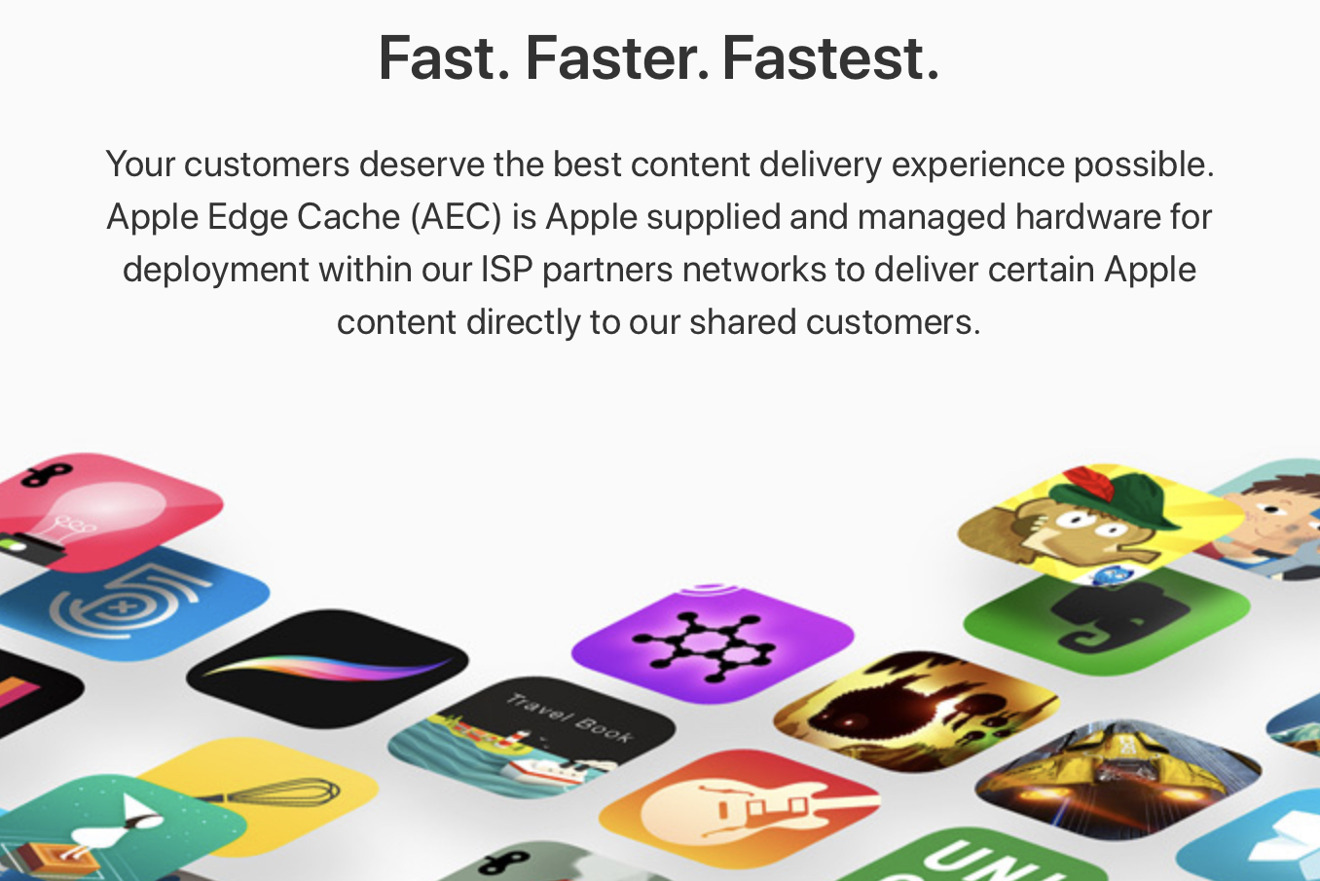Apple Edge Cache is a new service that enables better content delivery to end users with Apple-managed servers inside an internet provider's network.
Apple wants to utilize existing ISP networks and servers to house data closer to its customers. This means either content can be pre-cached on a server inside an ISP's network, or as content is viewed or downloaded by a customer, this data can be kept in a server local to the user for reuse throughout the provider's service area. This is a practice called edge caching.
As an example, you and your neighbor both stream the same movie in a relatively short period of time. Normally, you'll both ping the closest Apple server and have it delivered over the Akamai content distribution network, or other content delivery services that Apple has used to you.
When this occurs, the data will pass through an ISP server before reaching the user. With edge caching, the ISP can keep the data for that streamed content in the local ISP server and deliver it to you, or anyone attached to the same ISP server, again and again without pinging the originating Apple server again.
This Edge Cache allows for faster and more reliable content delivery. Less internet infrastructure to pass through before delivery reduces the potential for problems, minimizes re-routing, and cuts back on latency for the user, benefiting the user and the ISP. Other companies like Netflix and Amazon already a similar system for content delivery.
The Apple Edge Cache system is by invitation only, and applications can be sent in via the website portal for the service for consideration. Minimum requirement for applications include a minimum of 25Gbps of Apple traffic during peak usage. The network must also operate exist to primarily serve end users rather than some network operator.
 Wesley Hilliard
Wesley Hilliard








 Charles Martin
Charles Martin

 Malcolm Owen
Malcolm Owen
 William Gallagher
William Gallagher

 Christine McKee
Christine McKee










36 Comments
The Apple supplied servers will have all Apple TV+ content permanently stored, as well as other frequently consumed content from Apple Channels I’d guess. I’ve read that Apple uses very high bit rates for ATV+, so having the content sitting on the ISP’s network is a win for everybody.
ISP’s certainly benefits, but...
Doesn’t Netflix pay ISP’s for this ability? Does Apple?
20 year old technology, new business arrangement.